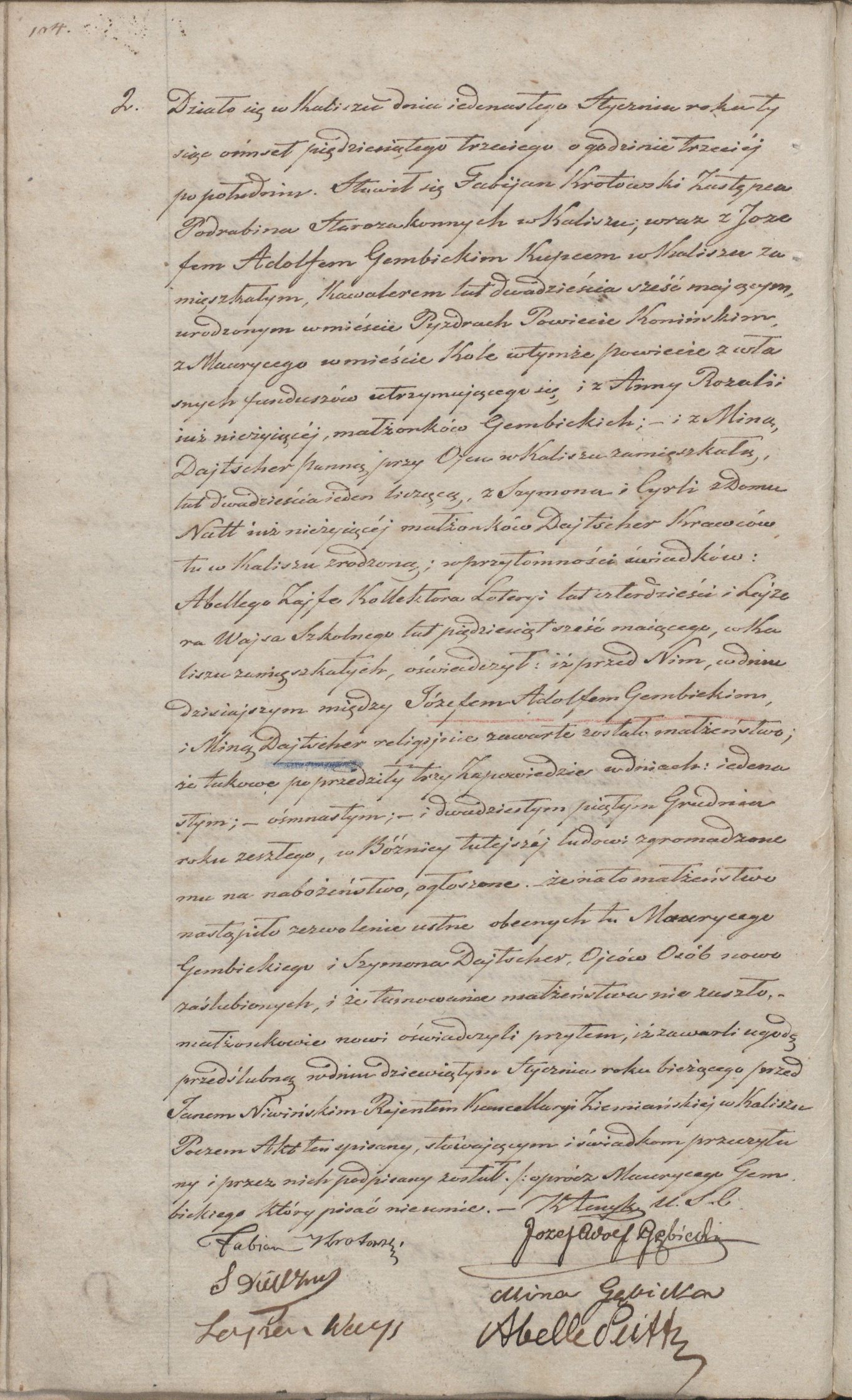Józef (Adolf) Gębicki
Henryk Goldszmit’s grandfather
A merchant, the son of Maurycy and Anna Rozalia Gębicki, born on 27 July 1826 in Pyzdry (at that time situated in the Konin District); died on 9 June 1877 in Warsaw.
According to his birth certificate, “at his circumcision in the synagogue, he was named ‘Józef,’” but according to his marriage certificate, his name was Józef Adolf. On 11 January 1853 in Kalisz, he married Mina Deitszer. His mother had already died by then, and his 93-year-old father lived in Koło and lived off his own means. Due to his advanced age, he was unable to sign his son’s marriage certificate, and the clerk noted down that the certificate was signed by everyone “except for Maurycy Gembicki, who is unable to write.” The couple settled down in Kalisz, and Józef started to work as a merchant and became a local social activist. He was an apprentice in Karol Brokman’s company, a company which was well-recognized in Kalisz. Brokman was the Deitszers’ relative. As we can read in the obituary (published in Izraelita 1877, No. 23), “The public trust of his fellow citizens, industrialists, villagers, and the representatives of state authorities made the late Gębicki so popular in Kalisz that we will not exaggerate if we say that he was well familiar with all the important local issues, and that he actively participated in all public institutions, regardless of their nature.”
In the years 1853–1868, he was a member of the Executive Council (Rada Szczegółowa) of the Jewish Hospital, and in 1858 he became a member of the supervisory board of the savings bank of the city of Kalisz (he was nominated by the Insurance Management [Dyrekcja Ubezpieczeń] in the Kingdom of Poland). In 1861, he became the manager of the city’s Social Club, and two years later, he was included in the supervisory committee of the Kalisz forests.
The author of the obituary quotes an anecdote which, in his opinion, characterizes Józef Gębicki perfectly well:
The building authorities decided that [the buildings in] one of the streets, called Złota and inhabited exclusively by Jews, should be demolished due to their allegedly bad condition. The issue was formally approved, and when the authorities were going to implement it, the poor and miserable residents of Kalisz turned to their last hope, their father and protector – to the late Gębicki for help. He, in turn, vigorously appealed to the Governor, and thanks to the trust he had earned and to the fact that he offered to pay for the inspection evaluating the real state of the buildings, he managed to withhold, and later to revoke the decision. With this deed, he saved the life and possessions of hundreds of the poorest families in Kalisz.
Józef and Mina had three children: Cecylia (born in 1853) and Karol (born in 1854), as well as one more daughter who died at birth on 1 July 1862. After Cecylia married Józef Goldszmit in 1874, the family moved from Kalisz to Warsaw. This might have been connected with Józef’s severe and incurable illness, which caused paralysis and excluded him from his professional activities. The daughter probably wanted to stay close to her parents and to help her mother take care of her father. The illness, however, gradually progressed, and three years after they moved to Warsaw, Józef died at the age of 51. He was buried at the Jewish Cemetery in Warsaw, on Gęsia Street (today Okopowa). The magnificent tomb of the Gębicki family survived until today (plot No. 20, alley No. 11).




